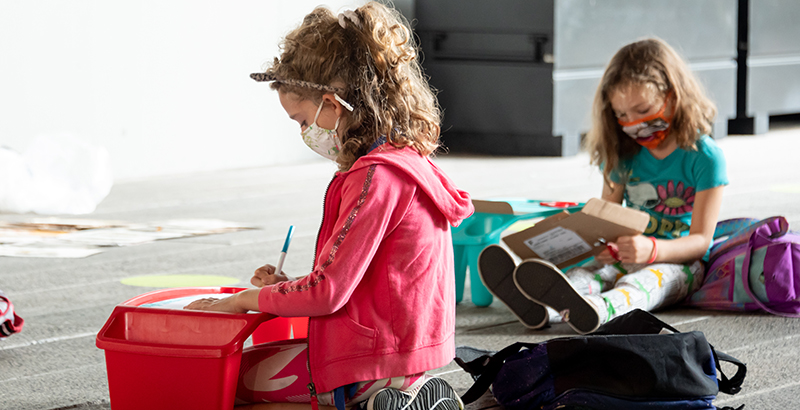Funk: Afterschool Programs Are Key Partners in Creating Supportive Learning Communities, Especially for Students in Poverty and English Learners

Across the nation, and here in California, education leaders are facing extraordinary challenges — and opportunities. The COVID-19 crisis has stretched out further, and cut us more deeply, than most of us imagined.
While so many did the best they could to pivot in the latter weeks of March, the crisis harshly revealed how our educational system is leaving students, families and communities behind. It was becoming more apparent how this system was harming communities of color, even to people who until this point had not understood how our education system is designed with the same structural racism found all through our history and society.
To not only adapt during this time of great disruption but design something new and better, we have to start with an unwavering commitment to creating the conditions where all students are seen, heard and truly belong. For me, an essential piece of that vision is positioning afterschool staff and culture as a critical component of the thriving education ecosystem of the future.
The afterschool and expanded learning community is built for this type of scenario. California’s publicly funded afterschool programs have diverse staff; 74 percent live in the communities they serve, and they often share the same ethnic, socioeconomic and class background as the students they work with. Afterschool programs are often located in communities with three-quarters of students eligible for Free or Reduced Price Meals and more than double the proportion of English learners as schools without expanded learning programs.
These connections and shared life experiences give program employees informed, firsthand knowledge of students’ needs, which enables them to respond effectively through a personal understanding of children’s day-to-day experiences at home and at school. Particularly in times of stress, positive, trusting relationships in safe environments are the most important factor in supporting students’ resiliency in the face of challenging circumstances.
As a result, afterschool and expanded learning programs naturally are essential partners in thinking about how to support our most vulnerable youth.
As stated in a recent brief from the Opportunity Institute and Partnership for Children & Youth, it it is imperative in this crisis to deepen the link between schools and community partners. What is largely seen as a school district challenge is really a community opportunity to care for every child and to give the social and emotional support essential to create the conditions for learning to take place.
One specific opportunity in California involved working with the governor’s office and the legislature to give all 4,500 afterschool programs funded by the state Department of Education maximum flexibility, including determining hours of operation and student-staff ratios and shielding grants from reduction through a compliance review. With that flexibility comes opportunity and responsibility. School districts and community-based organizations are creating innovative ways to work alongside each other to support the social, emotional and academic needs of each student.
Since the middle of March, LA’s BEST, a partnership between the City of Los Angeles and the Los Angeles Unified School District, has been supporting students and communities in a variety of ways. Some 1,500 members of the expanded learning staff grab-and-go daily meal distribution centers, support COVID-19 testing sites and supervise children of essential district employees at elementary schools, as well as providing virtual enrichment experiences for students with an online presence at a limited number of schools.
In partnership with the school district, the Garden Grove Boys & Girls Club has refocused its expanded learning programs to meet the critical needs of students and families. It offers full-day supervision at 16 elementary schools. The expanded learning teams work directly with school principals and administrators to tailor each program to students and families operating in a hybrid learning model, and adjusted their hours to accommodate them.
Temecula Unified School District in Southern California and its afterschool program have created Think Together Hubs, bringing into the classroom 56 students who are in greatest need of in-school instruction.
Education is more than instructional minutes. Building deeper relationships is a path toward creating conditions for deeper learning that is relevant and transformative. Let’s make sure every student and family in every state receives the love, support and opportunities they deserve.
Michael Funk is the director of the Expanded Learning Division for the California Department of Education.
Get stories like these delivered straight to your inbox. Sign up for The 74 Newsletter

;)

